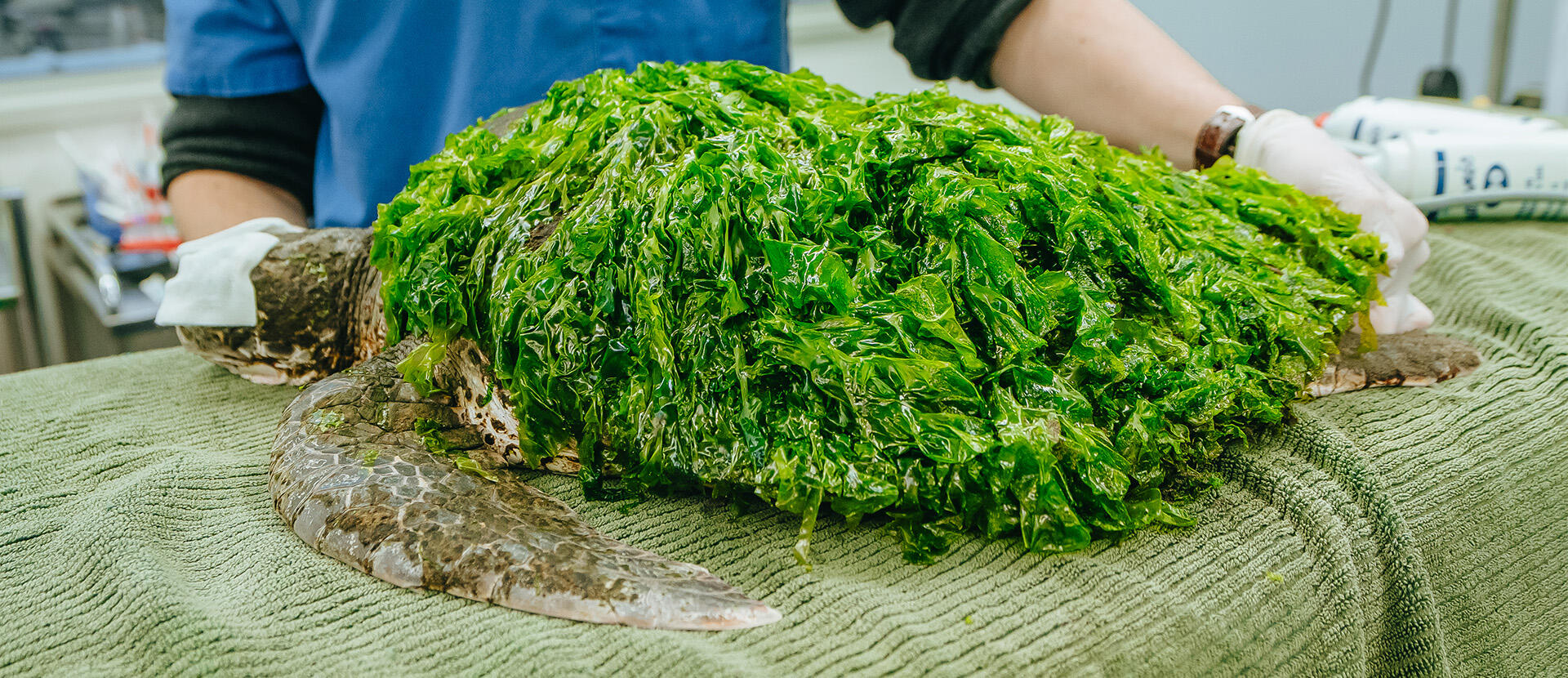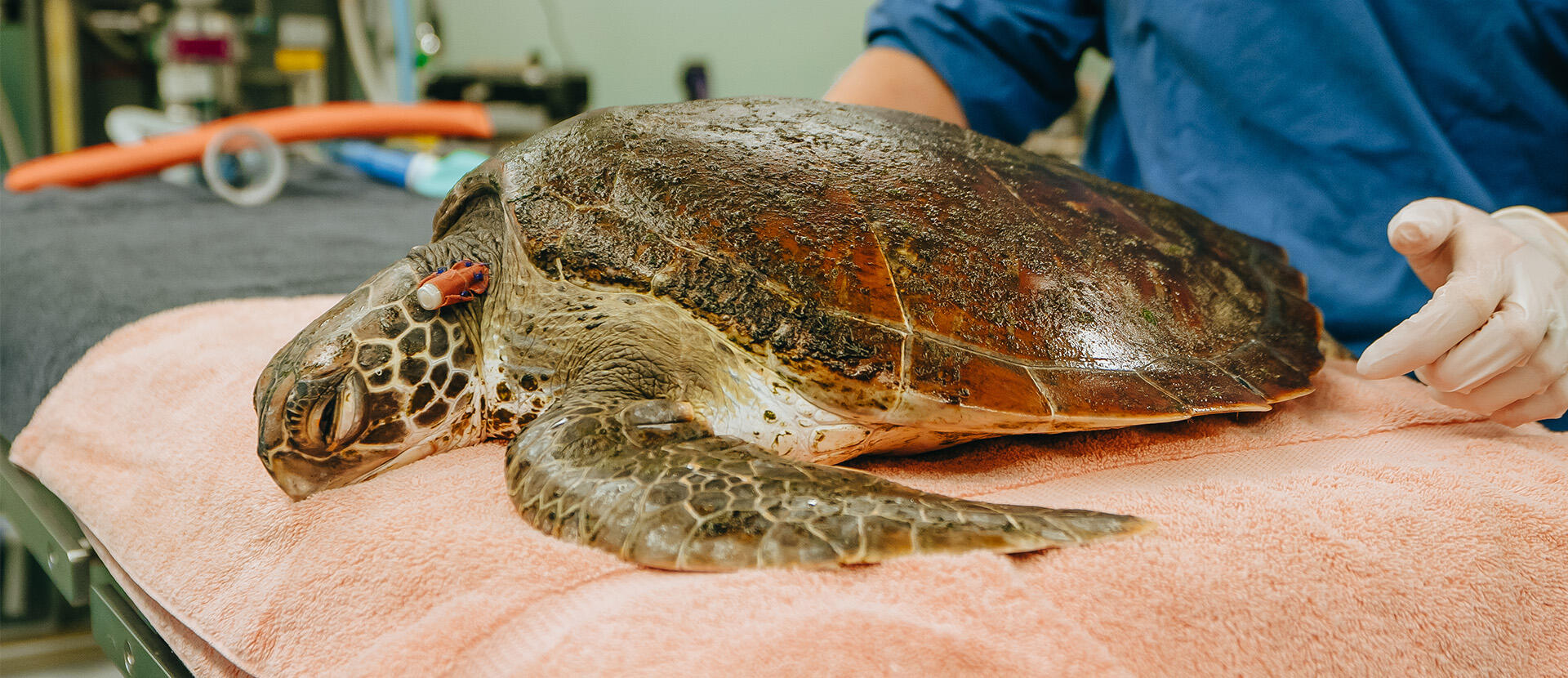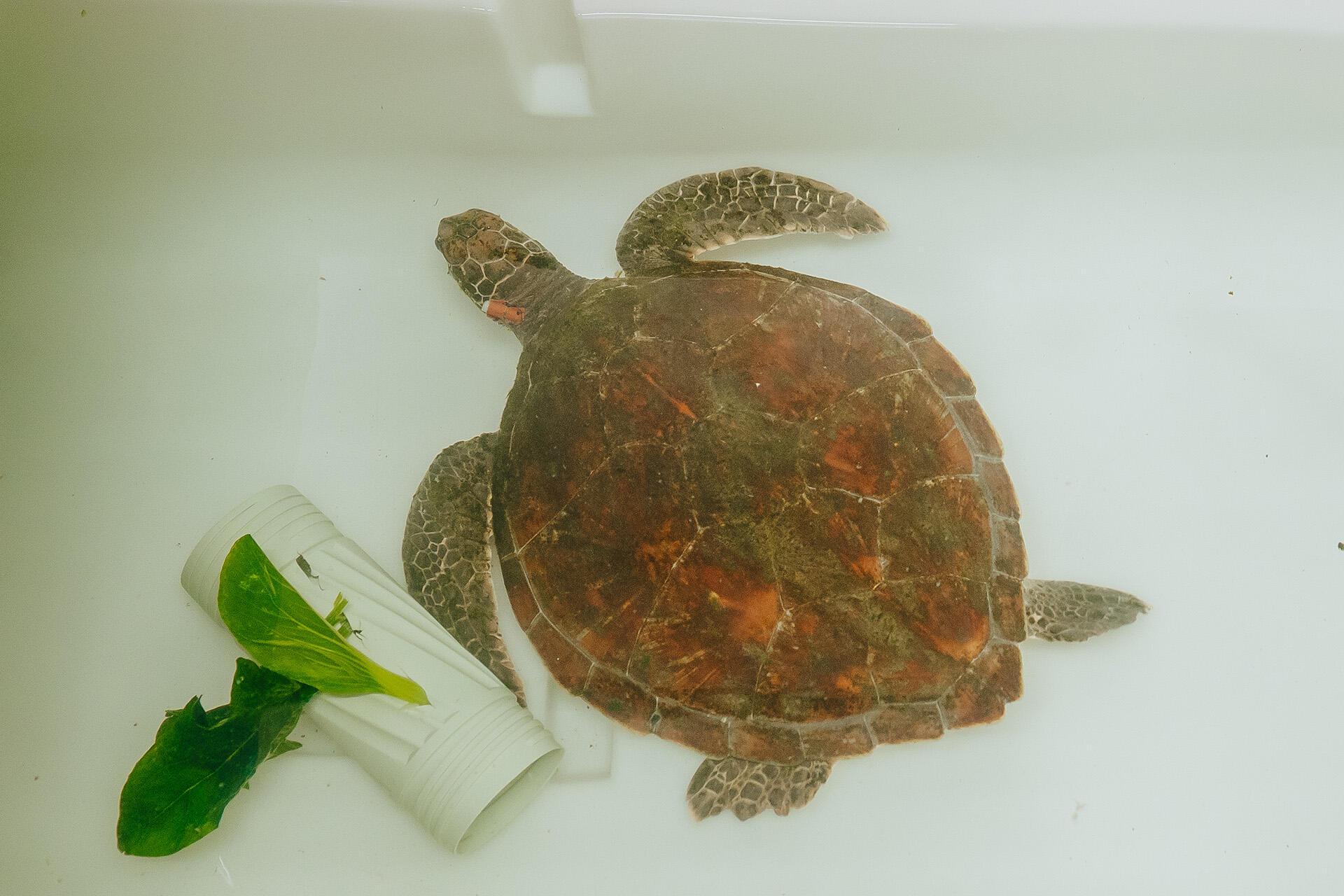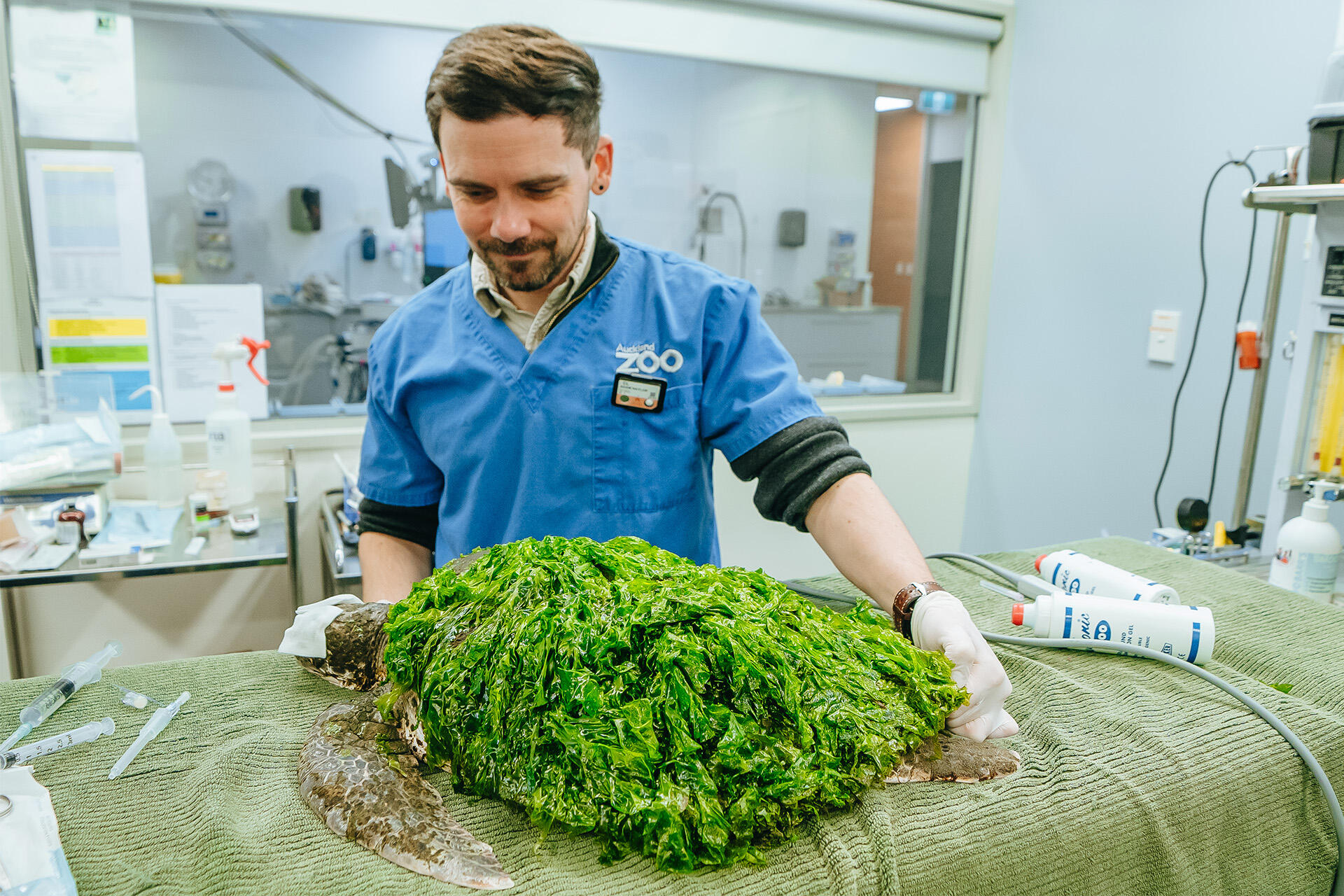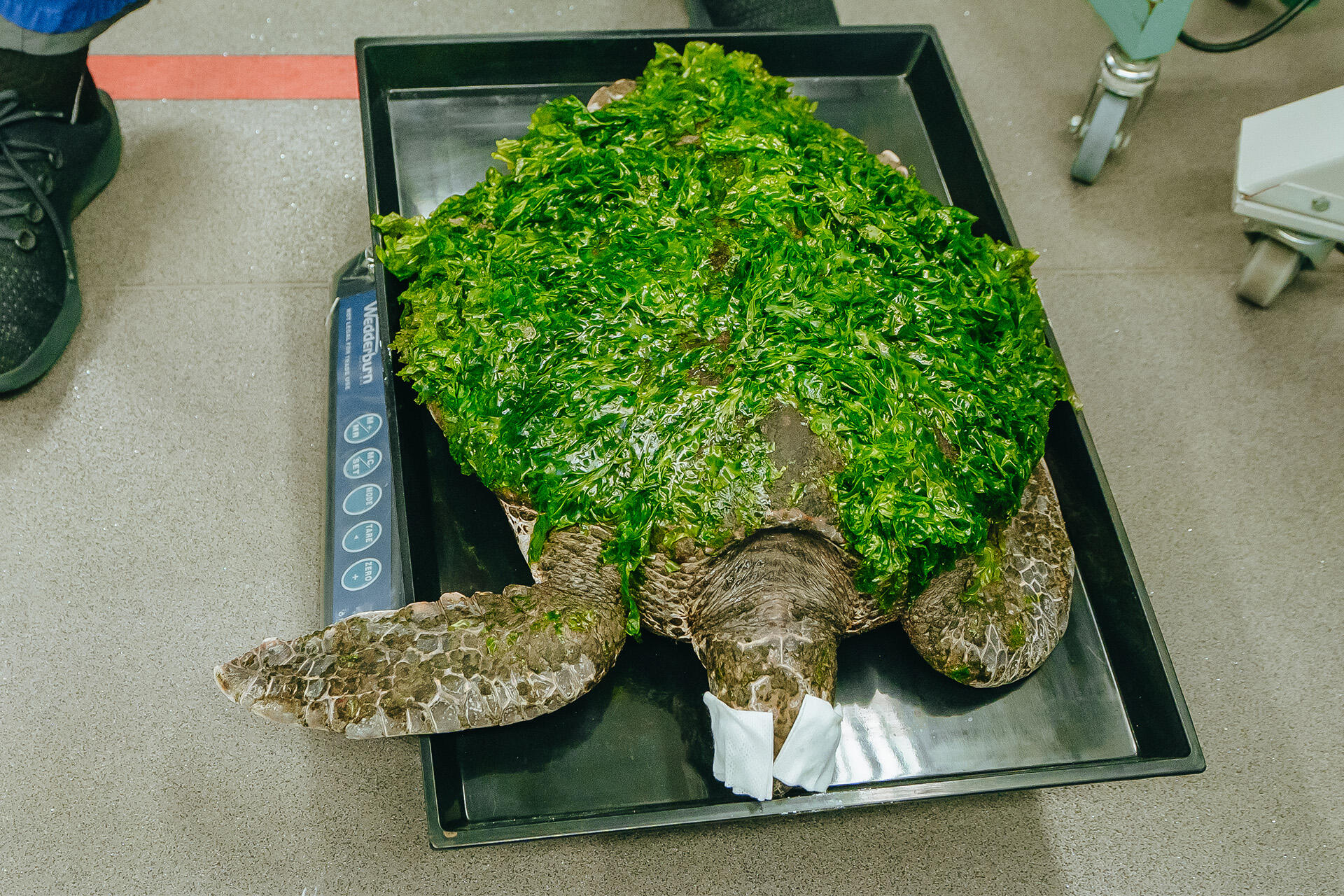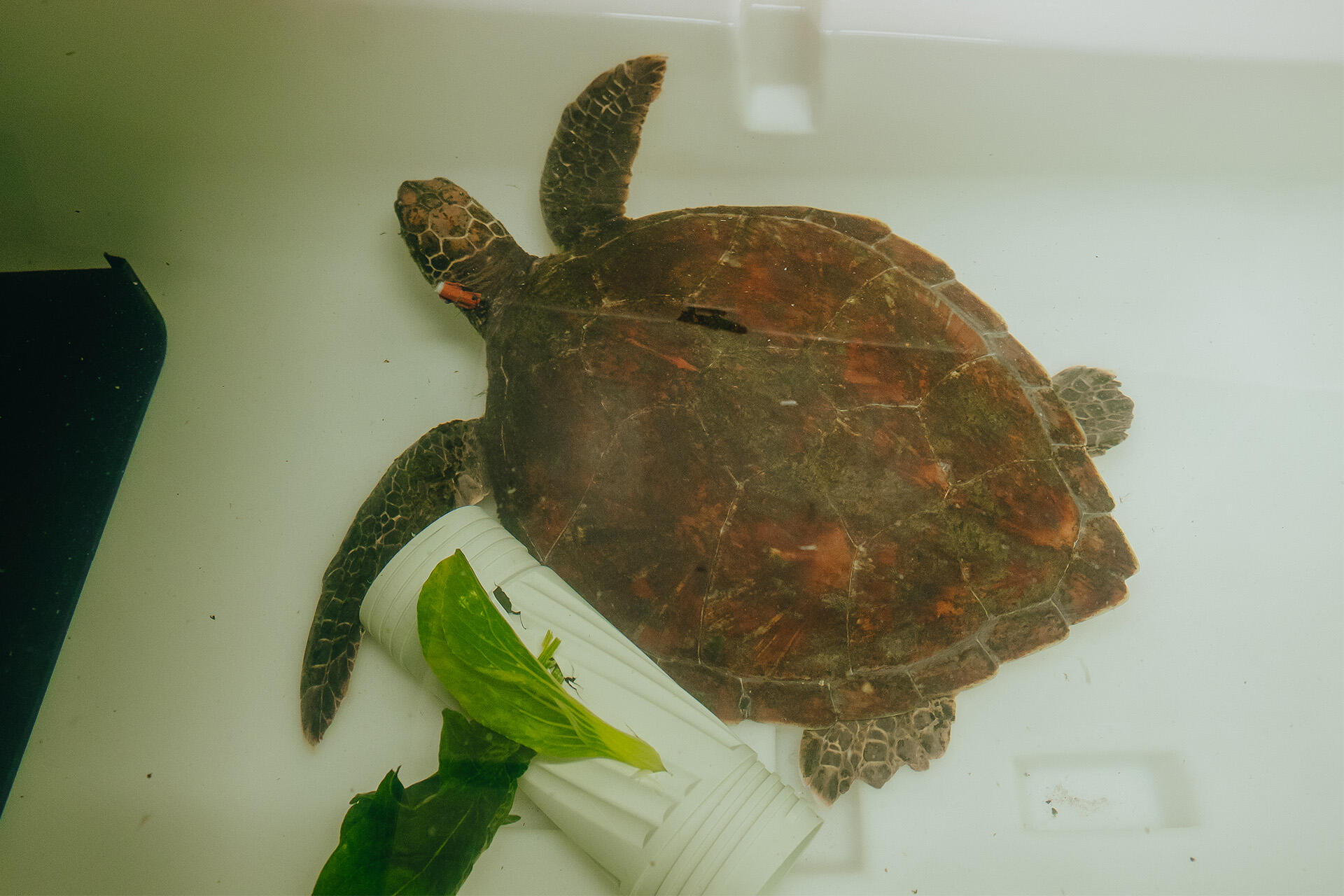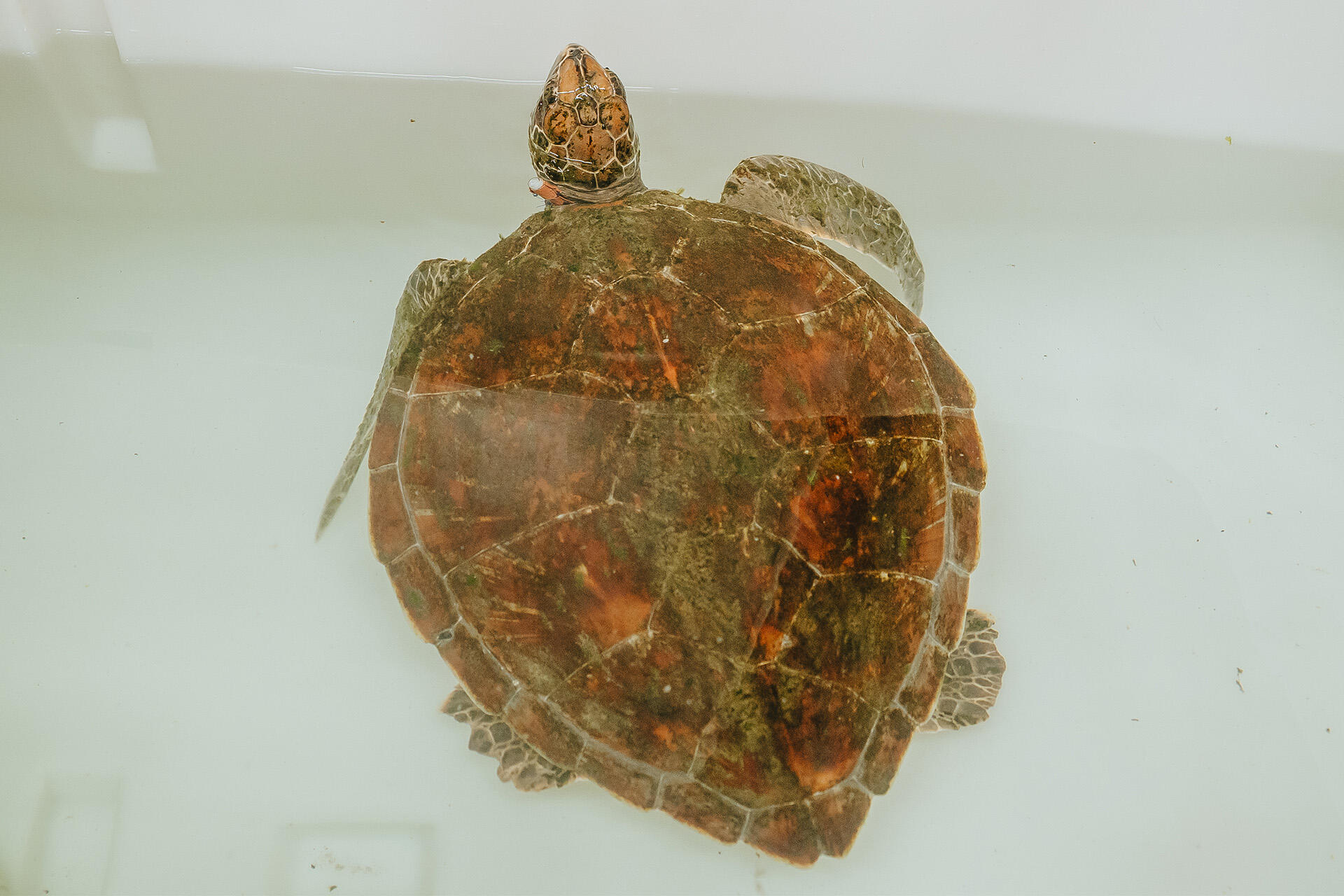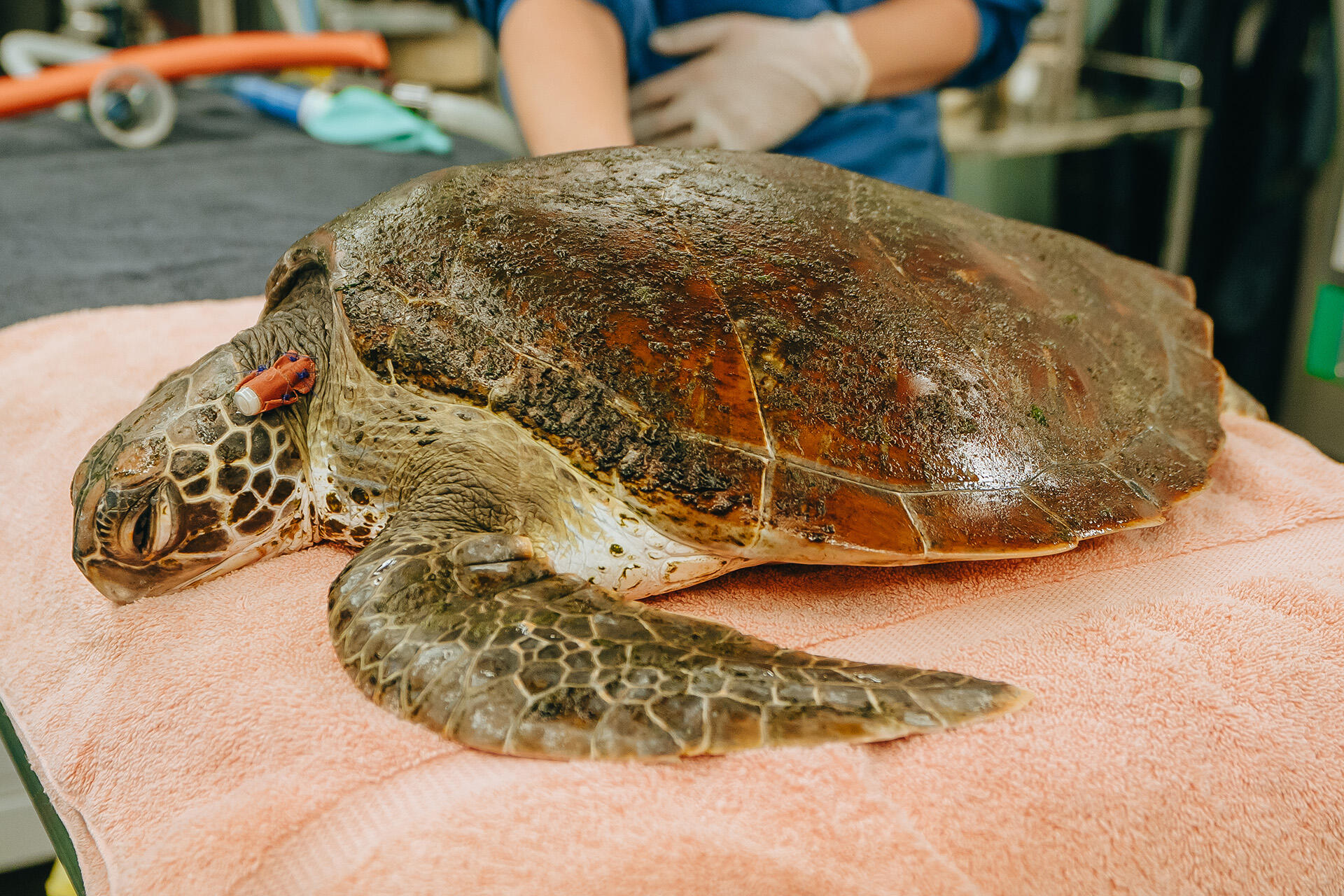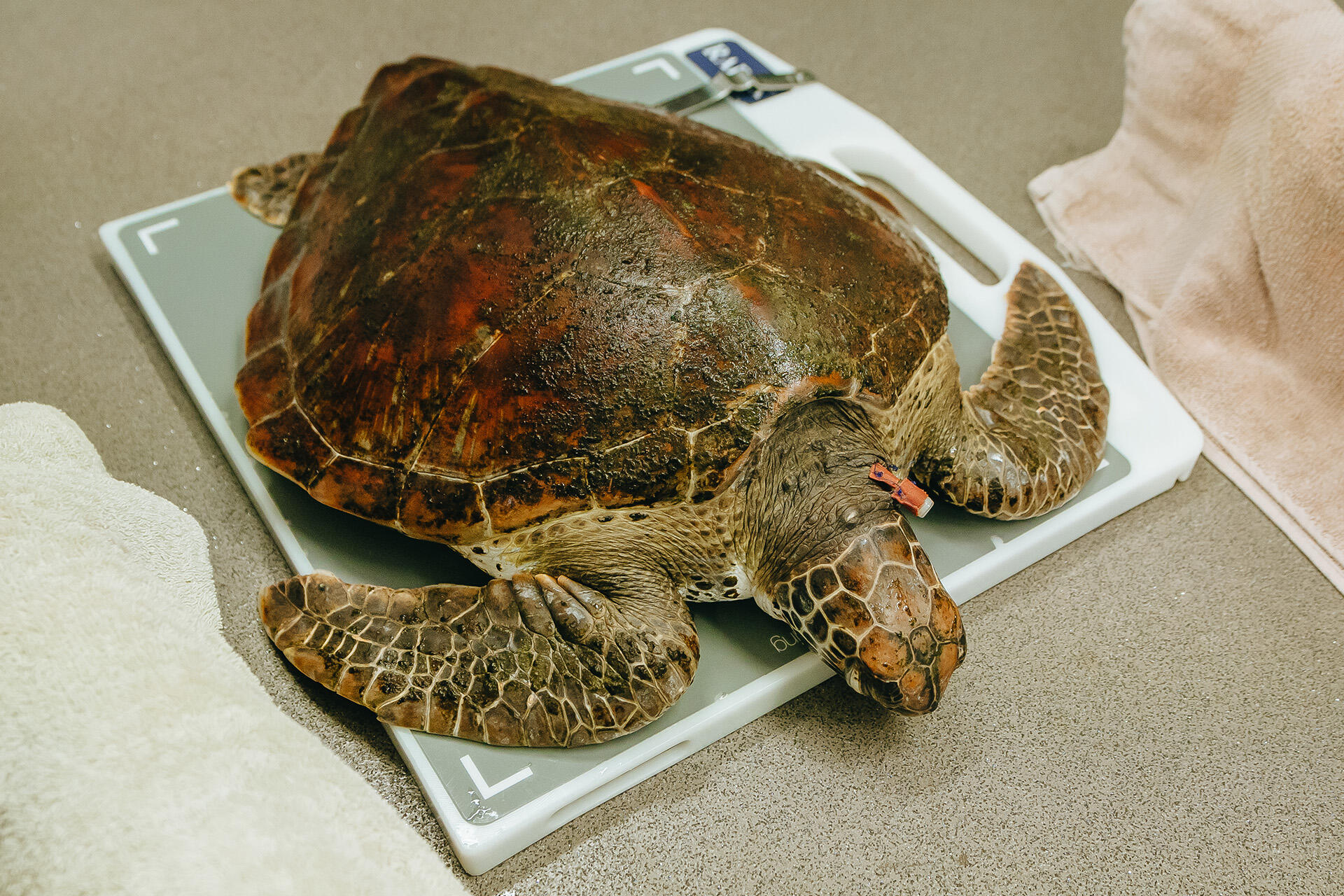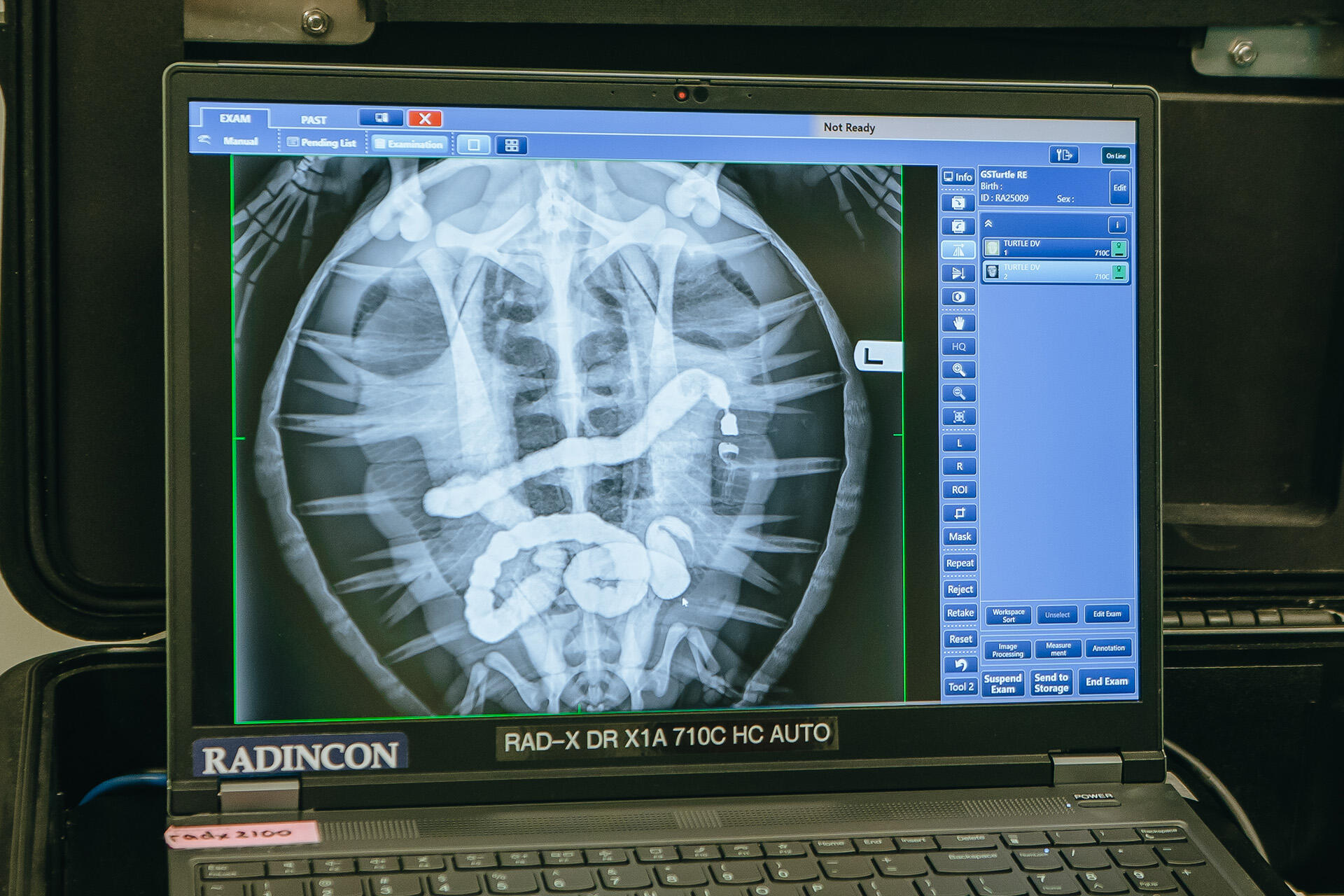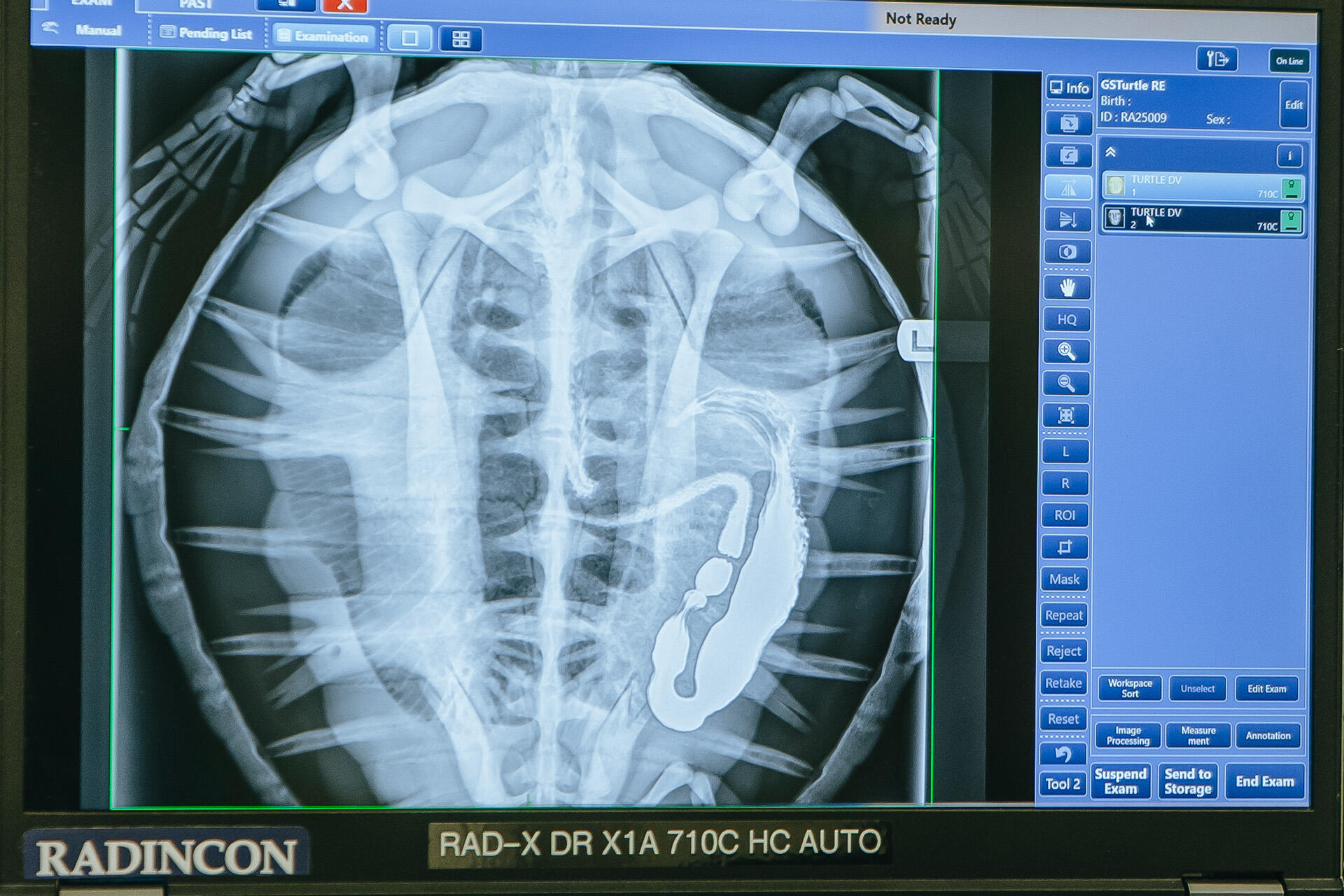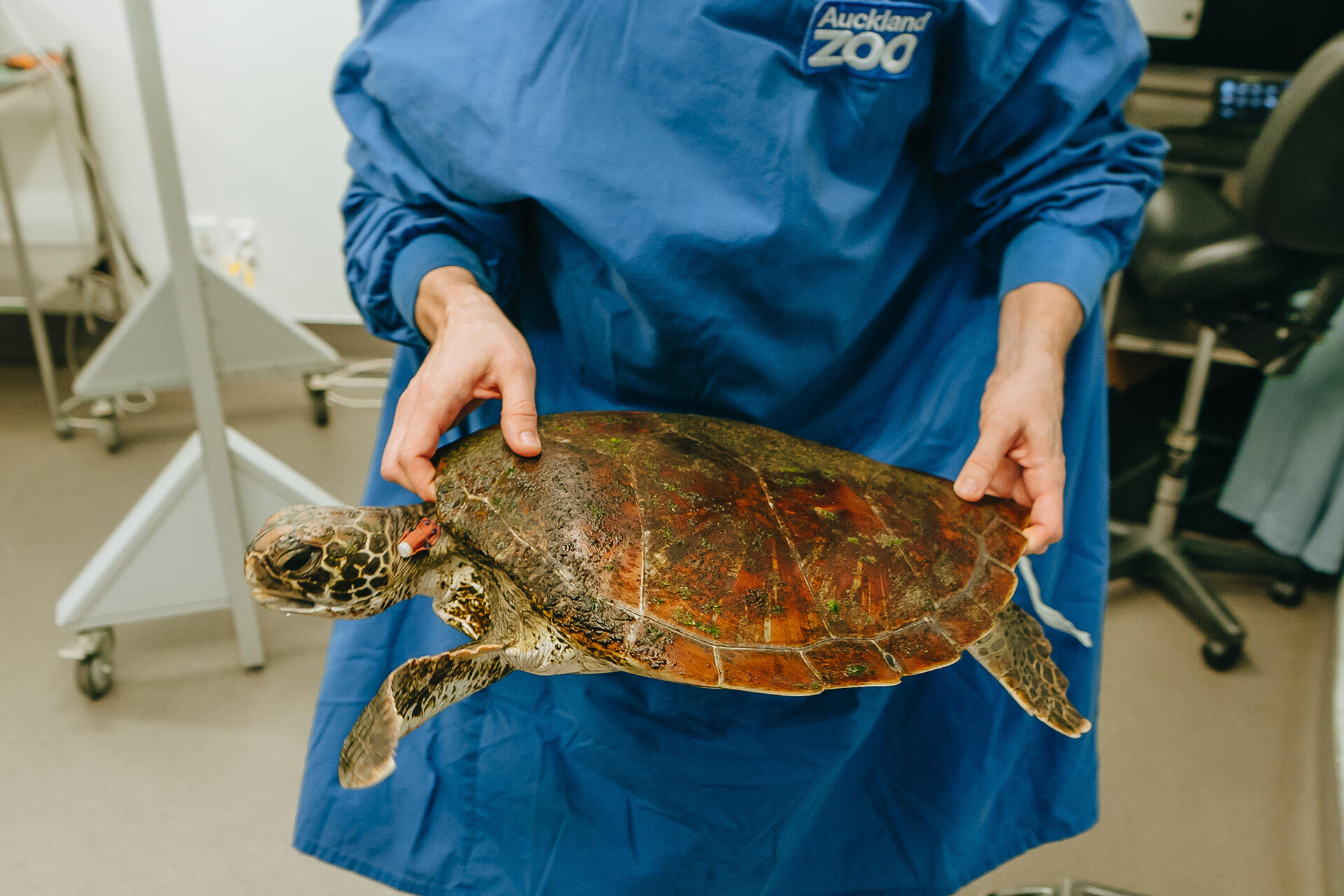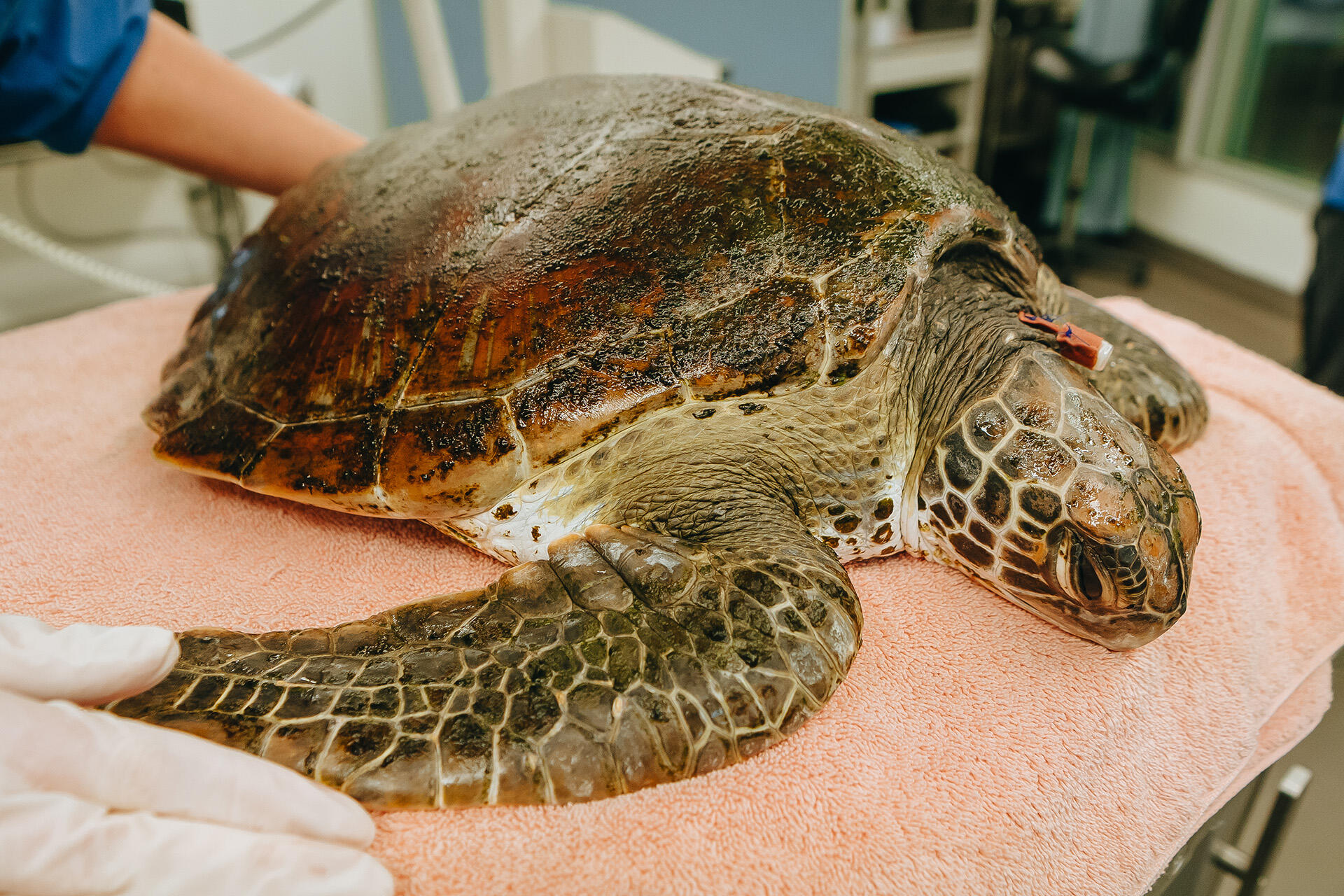Earlier this month, a wild green sea turtle was found stranded on a beach in Gisborne. Thankfully, a member of the public reported to the Department of Conservation (DOC), and they quickly arranged for the turtle to be flown to us with the help of Air New Zealand.
On arrival, our wild patient was found to be very quiet and had a very low body temperature. The top of the shell was covered in seaweed, a sign that they’d likely been unwell and floating for some time. The next day, a full examination took place. The sea turtle was found to have a low blood glucose level, abnormal kidney readings, and a very high white cell count suspicious of infection.
Intravenous fluids and glucose were immediately given. To avoid shock, the temperature of the turtle’s tank was increased by 2–3°C each day until normal body temperature was reached. It was then that our vet team could safely start treatment with antibiotics, antifungals and anti-inflammatory medication.
During the first few days in care, the vets noticed no faeces were passed, which is a serious concern. Gut stasis, where food stops moving through the gut, is common and dangerous in stranded cold-stunned sea turtles. Similarly, turtles are prone to ingesting foreign material, including plastic, which can cause blockages in the intestinal tract. This prompted immediate investigation.
To investigate, veterinarian Dr. Adam administered a special liquid contrast agent via a tube into the stomach. This liquid shows up on X-rays, allowing vets to track the movement of food through the digestive system - from the stomach to the small intestine, then the large intestine and finally the colon. This helps to reveal any blockages or irregularities.
After four days of X-rays, the results were looking positive, with no abnormalities detected. With this reassurance, the team decided to begin tube feeding (giving food via a tube into the stomach) under close monitoring.
It’s our hope that this precious patient continues to respond well. If so, the next step will be to transfer the sea turtle into the care of our Team Turtle partners at SEA LIFE Kelly Tarlton’s to begin the longer process of rehabilitation.
When sea turtles beach themselves in New Zealand, they are usually in a critical state, and it is often a last-ditch attempt to prevent themselves from drowning. If you ever come across a sea turtle stranded on a New Zealand beach, please report it immediately to DOC on 0800 DOC HOT so they can respond appropriately to the situation.


